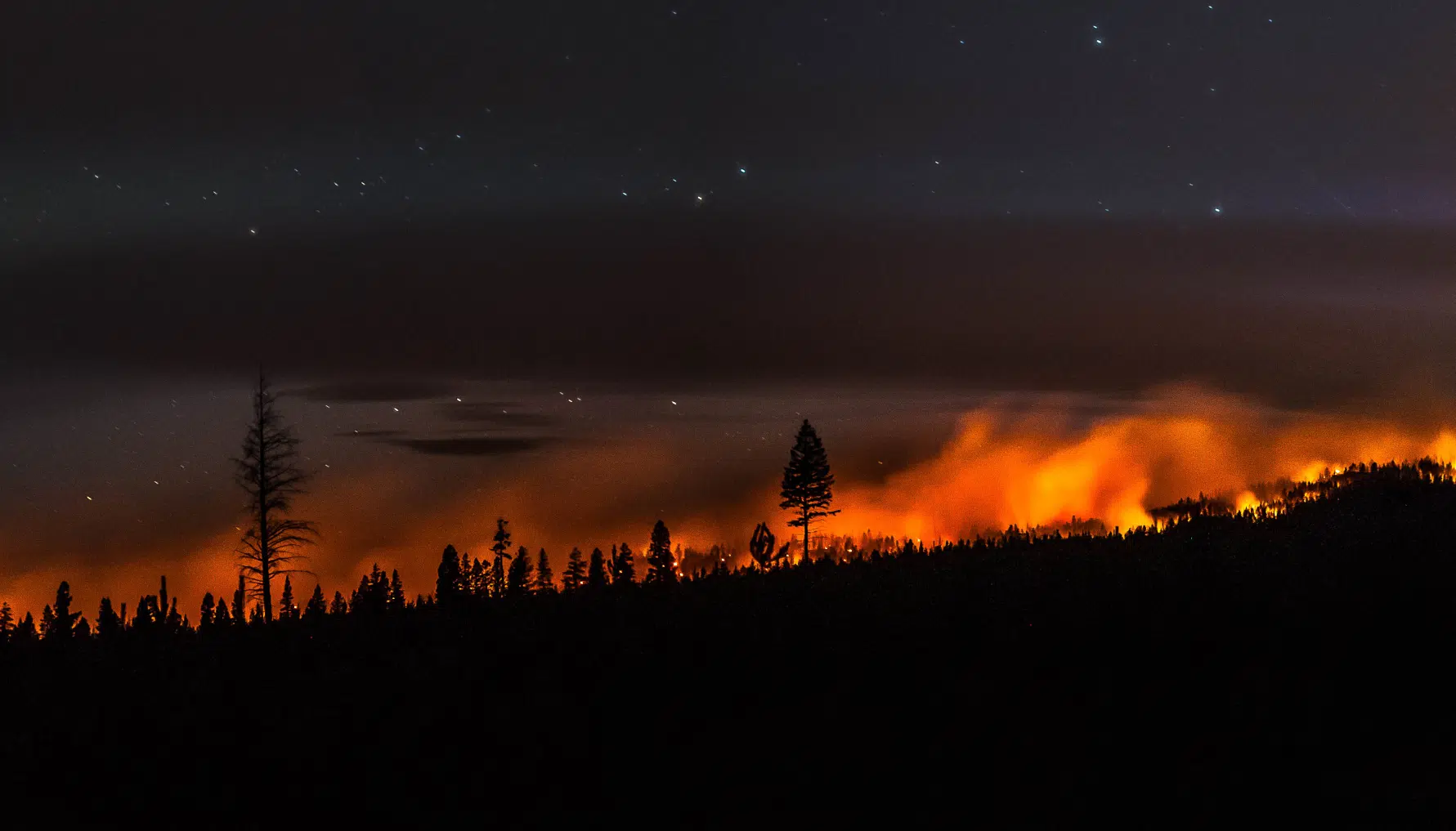
Large structure loss highlights 2015 fire season
The fire season is officially over, but the B.C. Wildfire Service says 2015 was among the top ten fire seasons of all-time, with more than three times the average area burned.
There were over 300,000 hectares that burned this summer in B.C. It falls just short of last year’s totals, but is well above the 10-year average.
Fire crews got an early start to the season this year, with dry conditions beginning in early spring. Not long into May, they were battling multiple fires in Northern B.C., namely the Little Bobtail Lake fire — a blaze that reached over 24,000 hectares at its peak.
The Prince George Fire Centre burned 213,055 of the 304,867 hectares torched this year in b-c.


